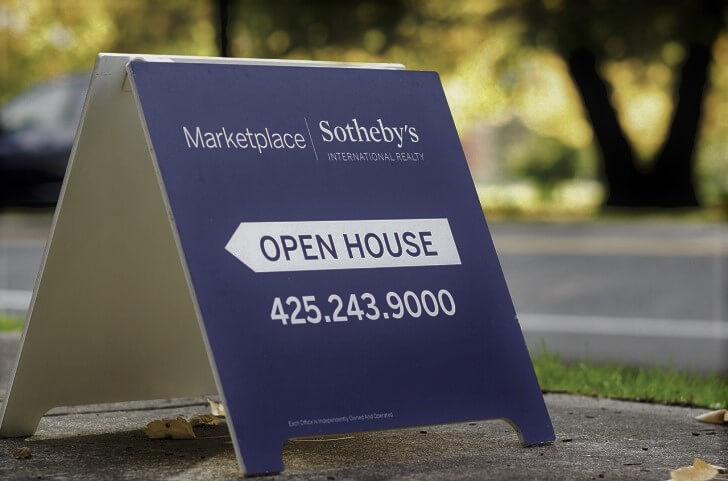
Ready to Buy Your Dream Home? Here Are Some Tips to Guide You From Mortgage Application to House Shopping

Buying a home is one of the biggest financial commitments the average person will make in their life. Not surprisingly, a lot of first time buyers find the process extremely nerve wracking. Follow these useful tips to avoid making common mistakes and to save as much money as possible.
Save for the Downpayment Early

Set up an automatic savings plan to make saving easier
People can expect to be asked to put down as much as a downpayment of 20% by lenders. The amount can decrease to just as little as 3% though when one signs up for first-time home buyer programs.
Depending on the total cost of the house one is buying, this percentage can still amount to a large and hefty sum. It’s best to just prepare oneself and begin setting aside money to pay the downpayment.
Get Quotes From Various Lenders

According to the government agency Consumer Financial Protection Bureau, borrowers can expect to save more than $3,500 by simply comparing the mortgage rates of three different lenders before choosing one.
One important question one should ask lenders is if they allow borrowers to buy discount points, which lets them pay interest up front so they can ultimately get a lower interest rate on the mortgage. This option would work best for people who have a sizeable amount of money on-hand.
Taking Advantage of Open Houses
Make the best of the open houses you go to and be observant of the property’s condition. Don’t be afraid to ask questions about the home from what year it was built to the condition of systems like heating and air conditioning Also, be aware of the stains, smells and disrepair inside.
Getting Preapproved
Being pre-qualified for a mortgage means that one can get an estimate of just how much money a lender will be able to lend after evaluating their debts and income. It would also mean that a seller would take one’s intent to purchase a home more seriously seeing the preapproval letter from the lender. In the end, it might get one one leverage come the time the seller is deciding which buyer to pick.
Account for Other Expenses

Move-in expenses include anything that one might need to furnish a new house like appliances, new paint and other fixtures
Don’t forget to take other potential expenses into account when calculating the budget. One can expect to spend on closing costs as well as move-in expenses. The former typically entails paying up to 5% of the loan amount and involves title searches and home inspections.
Don’t Be Afraid To Negotiate
People can also score some major savings by negotiating during the homebuying process. Ask the seller whether they’d be willing to shoulder some of the closing costs or cover any repairs the property may need. Some sellers will also bargain buyers just to get their house off the market.
More in Investments
-
`
The Push for Tax-Free Tips in America – A Win or a Risk?
Tipping has long been a fundamental part of the American service industry, providing essential income for millions of workers. However, the...
February 20, 2025 -
`
Matthew Perry Foundation Launches Addiction Fellowship at MGH
The impact of addiction on individuals and families is profound, and the need for specialized medical care in this field has...
February 13, 2025 -
`
Celebrity Couples Who Have Ended Their Relationships in 2025
2025 has already seen its fair share of celebrity breakups, and the year is just getting started. From heartfelt announcements to...
February 6, 2025 -
`
How Trump’s Policies Will Reshape Artificial Intelligence in the U.S.
The United States witnessed a significant political shift as Donald Trump took the presidential oath once again. His return to the...
January 31, 2025 -
`
Millie Bobby Brown Shuts Down Age-Shamers with a Powerful Message
From the moment Millie Bobby Brown first appeared as Eleven in “Stranger Things,” she captured hearts worldwide. But growing up in...
January 25, 2025 -
`
Why Outsourcing Payroll Services Is a Smart Business Move
Managing payroll is no small task—it’s a crucial part of any business that ensures employees are paid accurately and on time....
January 15, 2025 -
`
These AI Stocks Should Be on the Watch List of Investors in 2025
The buzz around AI stocks is growing louder than ever. With artificial intelligence shaping industries like healthcare, finance, and tech, smart...
January 8, 2025 -
`
Why the Starbucks Workers Strike Is Expanding Across U.S. Cities
The Starbucks workers’ strike has gained significant momentum, with employees in more U.S. cities joining the movement to address unresolved issues...
January 2, 2025 -
`
Are Shawn Mendes and Camila Cabello Still Close After Breakup?
The connection between Shawn Mendes and Camila Cabello continues to intrigue fans worldwide. Their shared history, from chart-topping collaborations to a...
December 24, 2024















You must be logged in to post a comment Login